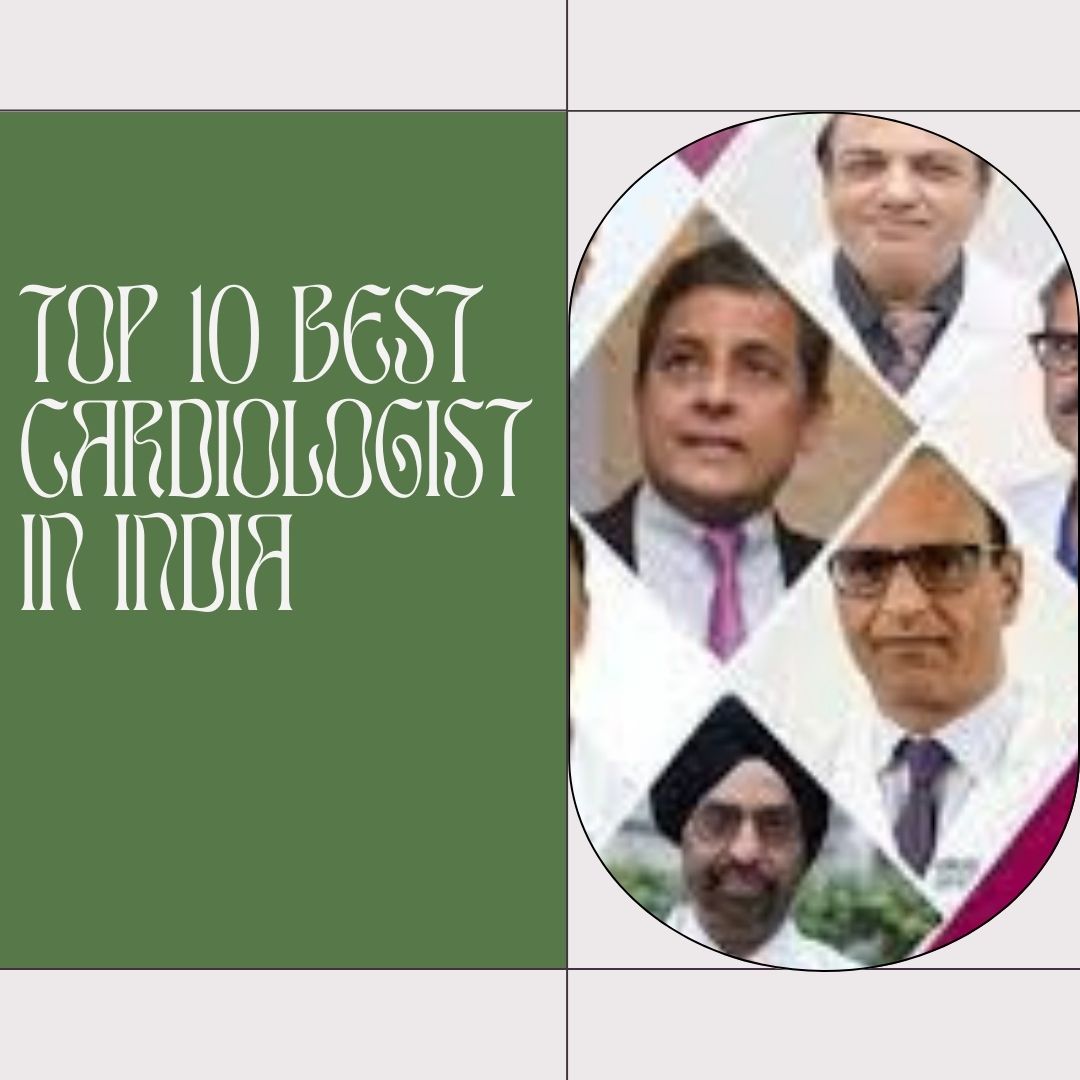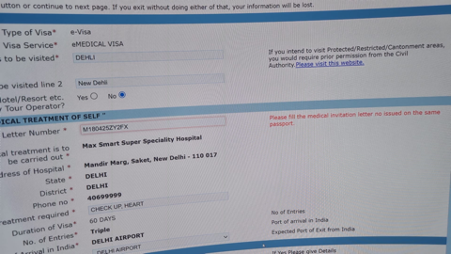
Before we get into the business of identifying and sharing some of the top cardiologists in India, let’s understand what cardiology is and what a cardiologist does.
Cardiology is a branch of internal medicine specializing in diagnosing and treating heart diseases, and blood vessels, which comprise the cardiovascular system. Cardiologists are specialists with the required skill set to handle instances of heart attacks, heart failure, arrhythmia or irregular heartbeat, and high blood pressure.
Aside from treating cardiovascular diseases, cardiologists are capable of recommending tests to diagnose heart ailments. They may also recommend changes to lifestyle, such as diet, exercise regimen, and managing weight. Cardiologists can also carry out procedures such as angioplasty and insertion of pacemakers.
A cardiologist will carry out a physical examination if needed, address any symptoms and talk about your medical and family history. You must divulge any history of heart ailments in the family, as this will enable your cardiologist to draw up an appropriate treatment plan.
Symptoms indicating the onset of a heart problem include:
- Shortness of breath.
- Dizziness and chest pains
- Fluctuations in heart rate.
- Elevated blood pressure levels.
Cardiologists are qualified to treat a wide range of heart problems, including:
- Heart failure and heart attack.
- Unexpected cardiac arrest.
- Blood clots and other heart-related abnormalities.
Your cardiologist may further quiz you to understand if you are at risk of any heart conditions and the best course of action if you do. They may ask about the following:
- Duration of the symptoms.
- Level of pain experienced when the symptoms appear.
- What were you doing when the symptoms appeared?
- Anything that helps you feel better when the symptoms appear.
- Any heart procedure or surgery has undergone in the past.
- Any scans done or medication consumed or being consumed.
Medications used to treat heart ailments:
Clot busters: These drugs help clear any blood clots that could block blood flow to the heart.
Blood thinning medication: These may be administered intravenously, that is, via a vein or even as an injection. They make the blood less sticky and thus less likely to form clots.
Nitroglycerin: This medication helps improve blood flow to the heart by widening the blood vessels that lead to it.
Beta-blockers: These medications reduce blood pressure, slow the heartbeat, and limit the amount of damage to the heart muscle.
Statins: These are drugs that help lower unhealthy cholesterol levels. High levels of low-density lipoprotein, or LDL cholesterol, can clog arteries. LDL has the reputation of being known as bad cholesterol.
Types of cardiology:
Cardiology is commonly classified into three types:
- Invasive.
- Non-invasive.
- Interventional.
Your cardiologist may turn to one or more of these to diagnose and treat your heart problem.
- Invasive cardiology: Invasive cardiology is usually minimally invasive and can help identify heart anomalies and are generally minor surgeries. These include:
○ Angioplasty: Angioplasty is a procedure that comes into play to help clear plaque in the arteries. It is usually a soft, sticky film comprising cholesterol, calcium, fat, and other substances in the blood. Excess of plaque may end up clogging your arteries and affecting blood flow.
Angioplasty involves the insertion of a tiny balloon into the clogged artery, which pushes the plaque against the walls so that both the blood flow and the heart’s functioning return to normal.
○ Stenting: Stenting involves inserting a tiny plastic or metal tube (stent) into the clogged artery and is left in place to hold the artery open permanently. It is often performed along with an angioplasty.
- Non-invasive cardiology:
As we can understand from the name, non-invasive cardiology is all about diagnosing and treating heart disease with the aid of external tests rather than turning to surgical procedures of any kind, no matter how minimally invasive.
Some of the most popular means of non-invasive cardiology include:
○ Cardiac electrophysiology: This is the study and testing of electrical which generate heartbeats.
○ CT scans: CT scans produce detailed images which your cardiologist can examine for heart disease or atherosclerosis in which there is plaque buildup on the artery walls.
○ Echocardiography: Echocardiography uses ultrasound waves to generate images of the heart, which enable cardiologists to observe the heart’s capacity to pump blood, fight infections and other abnormalities.
○ Heart monitors: Your cardiologist may also turn to a heart monitor for keeping track of your heart’s activity and capacity. These are also referred to as Holter monitors and function as tape recorders to keep track of all of your heart’s electrical activity for a set period.
○ Nuclear cardiology: Nuclear cardiology is a non-invasive study of cardiovascular disorders that uses radioactive elements to generate images of the heart. This allows the cardiologist to get a clearer view of the heart and identify where potential problems may lie.
○ Stress tests: Stress tests will evaluate how well your heart performs when exercise and any physical activity are involved. As any physical activity will increase blood flow and heart rate, stress tests will help your cardiologist understand how well your heart responds to these situations.
- Interventional cardiology:
Interventional cardiology deals specifically with less invasive procedures by turning to catheter-based treatment, which involves the use of small tubes for treating various heart conditions. Cardiologists have an alternative option to open-heart surgery by using this catheter-based procedure.
Common heart conditions treated by interventional cardiology are:
○ Coronary artery disease: The arteries which supply the heart with blood and oxygen narrow, thereby starving the heart of much-needed oxygen and blood.
○ Heart valve disease: This occurs when your heart’s valves which control the blood flow into the heart, aren’t functioning as expected. The human heart has four valves to ensure blood flows in the correct direction. Sometimes, one or more valves don’t open or close properly, disrupting the blood flow through the heart.
○ Peripheral vascular disease: Peripheral vascular disease(PVD) is a progressive disorder that restricts blood flow to the arms, legs, or blood vessels outside the heart, including the arteries and veins. The presence of PVD can lead to pain and cramping.
Types of cardiologists:
Just as the kinds of cardiology are varied, so are the cardiologists you can turn to depending on the heart condition you seek treatment for. These would be:
- Clinical cardiologists: Clinical cardiologists are responsible for diagnosing and managing heart disease. This is usually the first stop should symptoms of any heart ailment appear, such as an irregular heartbeat or a heart attack. They will coordinate with other physicians and surgeons if necessary.
- Interventional cardiologists: Interventional cardiologists are experts in minimally invasive, nonsurgical methods for treating coronary artery disease, valve disease, peripheral artery disease, as well as carotid artery disease that occur in the large vessels leading to the brain.
- Electrophysiologists: if you display symptoms such as fast, slow, or irregular heartbeats, an electrophysiologist (EP) is the specialist you should turn to. EPs perform catheter-based procedures along with implanting electrical devices such as pacemakers.
- Cardiac imaging specialists: This category of cardiologists turns to image techniques to help diagnose heart disease. They use stress tests, echocardiography, cardiac MRI, and CT scans and treat patients with image-guided therapies.
- Heart failure specialists: Due to the complex nature of heart failure, patients with this disorder may benefit from seeing a specialist. These cardiologists have expertise in managing symptoms and delaying the progression of heart failure. A heart failure specialist will advise on sophisticated treatments such as heart transplants when symptoms are severe.
- Congenital heart specialists: Congenital heart disease can be one or more abnormalities present since birth. Certain congenital diseases manifest themselves shortly after birth or during childhood. Others may go unnoticed until adulthood.
- Cardio-oncologists: This branch of cardiologists specializes in treating heart disease in cancer patients. Cancer treatments such as chemotherapy and radiation can affect the heart adversely. Having a cardio oncologist on board can help minimize any risk to the heart that may occur due to the cancer treatment being administered.
- Preventive cardiologists: Patients with a family history of heart disease or other genetic factors that may cause heart disease may require the services of preventive cardiologists. These specialists help minimize the risks of heart-related ailments by examining you thoroughly.
- Cardiac rehabilitation specialist: A cardiac rehabilitation specialist is tasked with designing and monitoring exercise and nutrition programs designed to help patients safely return to their everyday lives after undergoing any procedure following the diagnosis of a heart attack or being subject to any interventional procedure.
- Cardiac surgeons: A cardiac surgeon will enter the picture should the need for a coronary bypass or any other significant procedure to be done on the heart arise. Cardiac surgeons specialize in operating on the heart, its valves, and the critical veins and arteries in its vicinity. They are also capable of performing heart transplants should the need arise.
Cardiac surgeons can also help implant ventricular assist devices (VADs), mechanical devices that aid the failing heart in pumping blood throughout the body.
Top cardiology hospitals in India:
Choosing a cardiology hospital requires careful consideration to ensure you receive the best care to cater to your specific needs. Stay on top of your search for the best heart hospitals in India by doing your research on the hospitals you are considering and not shying away from asking any questions regarding the medical facility where you plan to seek treatment.
Here are some facilities to help you get started on your search.
- Medanta – The Medicity, Sector – 38, Islampur Colony, Gurugram
- Fortis Escorts Heart Institute & Research Center, Okhla Road, New Delhi
- Indraprastha Apollo Hospital, Sarita Vihar, New Delhi
- Fortis Memorial Research Institute, Sector 44, Opposite HUDA City Center, New Delhi
- Max Super Speciality Hospital, Press Enclave Road, Saket, New Delhi
- Artemis Hospital, Sector 51, Gurugram
- Metro Hospitals & Heart Institute, X-1, Sector-12, Noida
- Columbia Asia Hospital, Block F, Palam Vihar, Gurugram
- Fortis Malar Hospital, First main road, Adyar, Chennai
- Fortis Hospital, 154/9, Bannerghatta Road, Bangalore
Top cardiologists in India:
For help in seeking out a good cardiologist, a good place to begin would be by asking for referrals from your regular physician. Family and friends could also aid you in this regard. We have done some homework to help you in your search for a reputed cardiologist by preparing the list below. These are some of the best cardiologists in India.
- Dr. Anupam Goel, Max Super Speciality Hospital, New Delhi
- Dr. Vanita Arora, Indraprastha Apollo Hospitals, New Delhi
- Dr. Nityanand Tripathi, Fortis Hospital, New Delhi
- Dr. Saket Bhardwaj, BLK-Max Super Speciality Hospital, New Delhi
- Dr. Naresh Trehan, Medanta-the Medicity, Gurugram
- Dr. Purushotam Lal, Metro Hospitals & Heart Institute, Noida
- Dr. Balbir Singh, Medanta Hospital, Gurgram
- Dr. Vivek Jawali, Fortis Hospital, Bangalore
- Dr. Keshava R, Fortis Hospital, Bangalore
- Dr. Sengottuvelu G, Apollo Hospital, Chennai
My Med Trip is a leading healthcare and medical tourism company in India. We are offering complete medical tourism services in India for foreign patients. We also provide free medical consulting with appointments with the best hospitals and doctors in India. Our main medical tourism services are kidney transplant in India, liver transplant, liver cancer treatment in India, best kidney transplant, shoulder replacement surgery cost in India, brain tumor surgery, knee surgery, best cardiologists, bone marrow transplant cost in India, etc.








